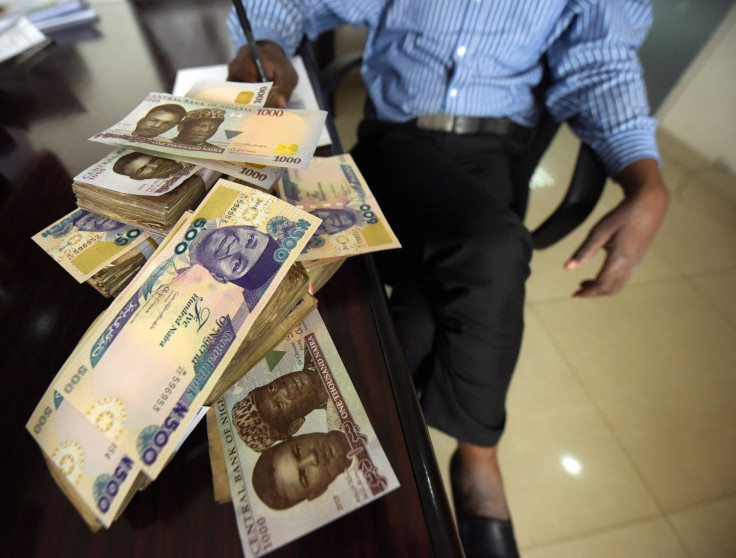Nigerian Bank CEO Arrested By Anti-Corruption Agency Over Alleged Goodluck Jonathan Election Scam

A Nigerian banking chief has reportedly been arrested by the West African nation’s anti-corruption agency. The Economic and Financial Crimes Commission told Reuters Thursday that Nnamdi Okonkwo, managing director of Fidelity Bank PLC in Lagos, is being detained as part of a probe into financial transactions made last year during the final months of former President Goodluck Jonathan’s administration.
Fidelity Bank PLC, a leading commercial bank headquartered in Nigeria’s financial hub, confirmed with Reuters that the transactions were being investigated by the anti-graft agency and were “duly reported as required by regulators.”
Okonkwo was reportedly taken into custody Monday. The Economic and Financial Crimes Commission, or EFCC as it’s known, also arrested the bank’s head of operations, Martins Izuogbe. The two men are being questioned over their suspected role in allegedly helping former Petroleum Minister Diezani Allison-Madueke launder $115 million in cash and distribute the money to key electoral officials in the days leading up to the 2015 presidential vote, according to South Africa’s News24.
Okonkwo allegedly met Alison-Madueke at her home in the capital of Abuja, where she instructed him on how the money would be lodged in his bank and shared among the officials ahead of the key election, in which incumbent Jonathan lost reelection to opposition leader Muhammadu Buhari. Alison-Madueke was appointed to the oil portfolio by Jonathan in 2010. She also served as the first woman president of the Organization of the Petroleum Exporting Countries, or OPEC.
Since taking office in late May last year, President Buhari has made fighting corruption a top priority. He has asked the United States and the United Kingdom, among others, to help trace and recover billions of dollars believed to have been stolen by some of Nigeria’s elite over several years. Much of the looted funds have been linked to Jonathan’s administration as well as Nigeria’s corrupt oil sector, in which 250,000 barrels of crude oil were believed to be stolen each day.
© Copyright IBTimes 2024. All rights reserved.





















